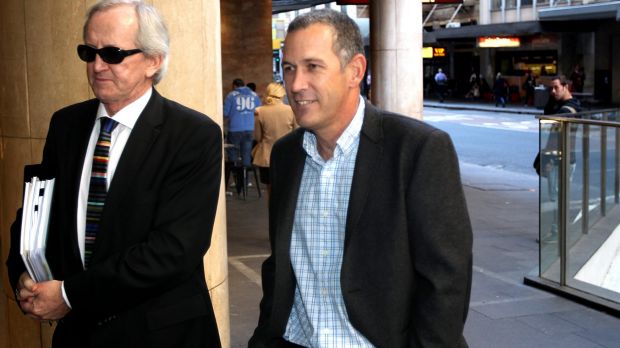
There are fresh accusations NSW’s Independent Commission Against Corruption held back evidence at a public hearing that would have undermined its narrative. The latest claims were raised by Newcastle businessman Andrew Poole, whose lawyers say ICAC seized documents that supported Mr Poole’s evidence but never made them public. His lawyers learned ICAC held the documents only after it had found him corrupt in 2013, after an inquiry into coal exploration licences known as Operation Acacia.
The lawyers have written to ICAC’s independent inspector, David Levine, asking him to investigate. Mr Poole was exonerated by the Supreme Court in 2014.
The complaint says ICAC “unjustly failed to put before the public inquiry in Operation Acacia all relevant documents”. It says ICAC and some of its then most senior officials knew or should have known of the exculpatory documents and “unreasonably or improperly failed to explore the content of the documents” with Mr Poole. It urges Mr Levine to consider whether this amounts to maladministration under the ICAC Act. Officials named in the complaint did not respond and ICAC said it did not comment on complaints to Mr Levine. One said he was unaware of Mr Poole’s complaint. The complaint is the latest to focus attention on how ICAC deals with evidence.
In civil proceedings last month, ICAC counsel Jeremy Kirk SC told the Supreme Court that ICAC believed it did not have to make exculpatory material available at public hearings because it was impractical.
The Australian revealed last week that ICAC refused to provide the NSW Director of Public Prosecutions with transcripts of evidence the prosecutor wants to examine concerning a high-profile criminal prosecution. Correspondence shows ICAC rejected a DPP request to lift a suppression order it imposed on transcripts from secret compulsory examinations.
In March, magistrate Greg Grogin dismissed criminal charges against former emergency services commissioner Murray Kear and awarded him indemnity costs because ICAC had suppressed exculpatory evidence.
DPP Lloyd Babb SC is expected to be asked about his access to the material assembled by ICAC when he gives evidence tomorrow to state parliament’s ICAC oversight committee. Commissioner Megan Latham will testify on Friday.
In Mr Poole’s case, ICAC recommended the DPP consider charging him for agreeing to have his company, Doyles Creek Mining, publish false and misleading material to the NSW Department of Primary Industries. Mr Poole had disputed this at the ICAC hearing and the Supreme Court ruled he was not aware the submission was misleading. The DPP decided not to charge him on that count.
His complaint says during the court case he learned some Doyles Creek Mining documents supporting his evidence had not been made public during the hearing. A lawyer realised ICAC had been given this material when Mr Poole’s legal team sought documents from law firm that had been the lawyers for Doyles Creek Mining, Sparke Helmore.
Chris Merritt Legal Affairs Editor
The Australian 7th September 2016.
(WTF) Used with Permission.
